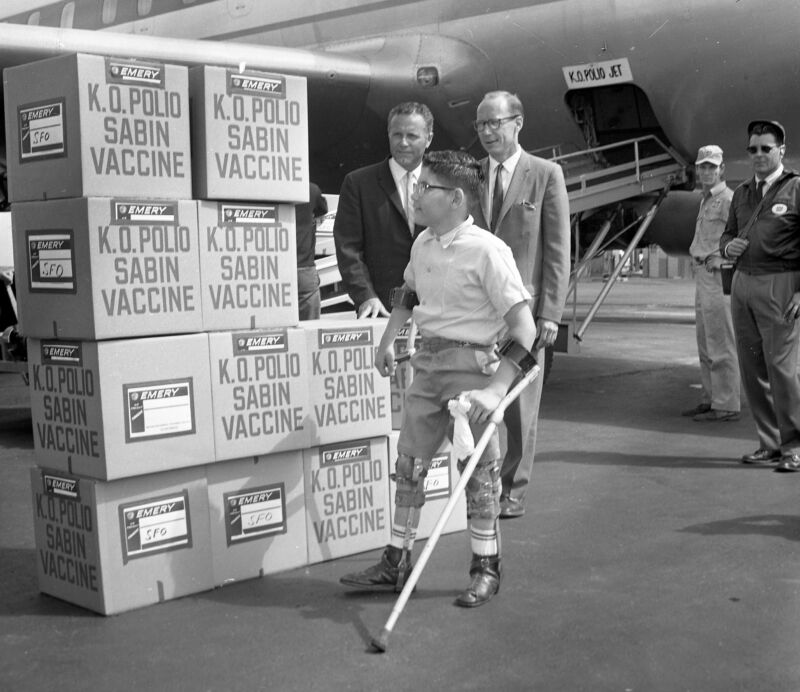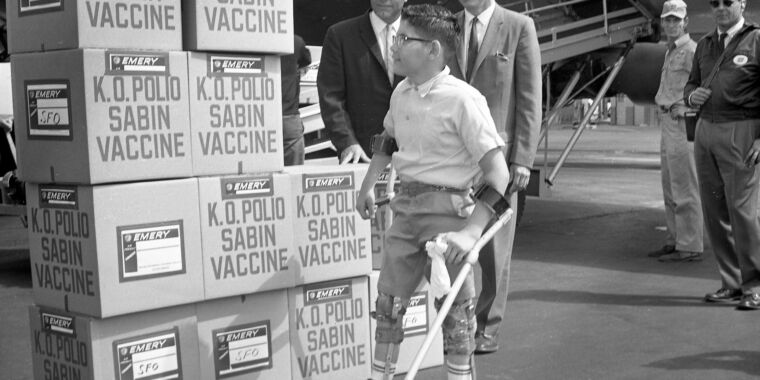
Public sentiment on the importance of safe, lifesaving childhood vaccines has significantly declined in the US since the pandemic—which appears to be solely due to a nosedive in support from people who are Republican or those who lean Republican, according to new polling data from Gallup.
In 2019, 52 percent of Republican-aligned Americans said it was “extremely important” for parents to get their children vaccinated. Now, that figure is 26 percent, falling by half in just five years. In comparison, 63 percent of Democrats and Democratic leaners said it was “extremely important” this year, down slightly from 67 percent in 2019.
Overall, only 40 percent of Americans now say it is extremely important for parents to vaccinate their children, down from 58 percent in 2019 and 64 percent in 2001.
More broadly, 93 percent of the Democratic group said it was “extremely” or “very” important for parents to vaccinate their children this year, while only 52 percent of the Republican group said the same.
On the other end of the spectrum, 11 percent of the Republican group said vaccinating children was “not important at all,” and an additional 8 percent said it was “not very important.” For the Democratic group, only 1 percent was reported in each of those categories.
Dangerous disinformation
Perhaps most concerning, the data indicated that a growing number of Americans view vaccines as more dangerous than the diseases they prevent—including polio, measles, tetanus, rotavirus, diphtheria, whooping cough, meningitis, and RSV, among others. Now, 20 percent of Americans overall think vaccines are more of a threat than the dangerous diseases they effectively prevent.
The partisan divide is most stark on this sentiment. In 2019, the two parties were about the same. Twelve percent of the Republican group and 10 percent of the Democratic group held this erroneous belief. But now, a whopping 31 percent of the Republican group say vaccines are a more significant threat than dangerous diseases, while the percentage among the Democratic group fell to 5 percent.
Republicans and Republican leaners are much more likely than Democrats and Democratic leaners to believe the false and debunked claim that vaccines are linked to autism—19 percent of the Republican group believe this falsehood compared to 4 percent of the Democratic group.
The polling data aligns with national vaccination trends tracked by the Centers for Disease Control and Prevention. During the pandemic, rates of routine vaccination among kindergartners slipped from the protective target of 95 percent—which prevents infectious diseases from spreading widely—to 93 percent. Additionally, nonmedical exemptions from vaccinations have reached an all-time high of 3 percent nationally. At least 10 states have exemption rates at or above 5 percent, preventing them from reaching the protective target of 95 percent vaccination coverage.

